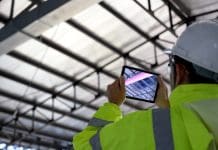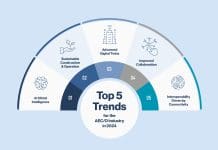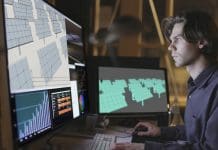Nearly 200 delegates gathered for the launch of a new community designed to encourage a cross-sector approach to the future development of a cyber-physical ecosystem in the UK and beyond
Experts agreed that common data-sharing standards, greater interoperability, and a systems-based approach to innovation is vital to build a sustainable and productive future for the UK economy, society and environment.
Advanced AI-enabled cyber-physical systems such as digital twins, the metaverse and autonomous robotics and machines will shape the future of digitalisation and the internet.
These systems will be built and connected together using common building blocks, including advanced technologies and new principles, protocols and standards.
Building a multidisciplinary approach with cross-cutting capabilities for the UK will be critical to solving systemic challenges such as climate change and building greater resilience in global supply chains.
The National Cyber-Physical Infrastructure ecosystem was held on 16 November
These emerging new capabilities promise great opportunities for society, but industry partners must agree on data-sharing arrangements and new business models for interoperability and openness to maximise the value of innovations, delegates at the launch of the National Cyber-Physical Infrastructure (NCPI) ecosystem heard on 16 November.
The NCPI ecosystem is a new cross-sector collaboration that aims to build a shared vision for how we develop and connect cyber-physical systems and break down siloed innovation.
It is led by Digital Catapult, Connected Places Catapult through the Digital Twin Hub, and the High Value Manufacturing Catapult, with funding and support from the UK government’s Department for Science, Innovation & Technology.
Systems and applications discussed at the event included connected digital twins, robotics and the metaverse – and it was stressed that enhancing the value of each will depend on professionals in various disciplines working together.
“We are here to listen to you, and we want your input as to how you think this programme should flow and behave over the next 18 months,” said the Digital Twin Hub chair Dr Alison Vincent at the start of the session.
“Collaboration is the key to true innovation: it drives diversity of thought, removes duplication and speeds up innovation. As digital twins develop and monitor data from robotics, there is a growing need to collaborate to speed things up.”
The DT Hub, Alison continued, is working hard to help leaders better understand data and digital systems, improve their knowledge of legal data-sharing agreements and help professionals build business cases for connecting digital twins between sectors.
“What is critical here is the interconnectivity between these different systems,” she added.
What is the key to unlocking cyber-physical infrastructure?
Mark Enzer, vice-chair at the Digital Twin Hub, explained that the key to unlocking the value of cyber-physical infrastructure is to recognise the importance of “making connections between people, organisation and communities”.
He added: “By making connections between digital twins, we can move towards understanding our systems better and intervene more effectively. This is not about isolated technology – the value comes from an ecosystem making connections.”
The Department for Science, Innovation & Technology’s director for emerging technologies and regulatory innovation Hannah Boardman told the event that developments in cyber-physical infrastructure will be driven by industry and academia, with government support “to ensure systems are connected in a secure and trustworthy way, and demonstrate their advantages to a wider audience”.
“Collaborations are absolutely critical to achieving this and the key question for us now is how we connect and grow this activity, and work towards a shared cyber-physical future where the convergence of different technologies allows us to use exciting things in the real world,” she added.

“It is great to see the launch of the National Cyber-Physical Infrastructure ecosystem. I encourage as many of you as possible to get involved.”
Hannah was followed on stage by Digital Catapult’s director of strategy and external affairs, Philip Young.
“Cyber-physical infrastructure is a really important part of how we collectively address techno-social challenges, and we are entering a period when new capabilities are being built,” he remarked.
“When we look at innovation across the UK and globally, there is a tendency to consider investment in specific technologies, sectors or challenges. But the important thing is to build bridges across sectors: creating investment, impetus and drive towards achieving goals together.”
Philip added that he firmly believes that collaboration within the National Cyber-Physical Infrastructure ecosystem can create a “fantastic vision to change the way we approach innovation and research and development; galvanising how the country works”.
Opportunities and challenges
A panel discussion followed, involving the head of the National Digital Twin Programme Alexandra Luck; the Climate Resilience Demonstrator (CReDo) engagement lead Sarah Hayes; the Lego Group’s global lead for digital policy Adam Ingle; and Innovate UK’s head of cyberphysical and digital twins Simon Hart.
Alexandra said that that National Digital Twin Programme is developing a data-sharing infrastructure that combines technology and process to support the creation, management and sharing of information “in ways that are trusted, secure and resilient”, as well as “developing the underpinning rules of the road, to enable people to bring together the digital twins they will need for their particular use cases”.
She added it is essential that the programme does this in a way that allows people to realise benefits through the use of these technologies and processes at a pace which is consistent with the level of technical capability and resources they have access to. She also stressed that the work of the programme will enable digital twins, individually and when connected, to be appropriately safe, secure, trustworthy and ethical, as well as adaptable, sustainable and interoperable.
Sarah Hayes agreed that data needs to be interoperable among users across all sectors.
“If we have that underpinning infrastructure then it creates more of a level playing field to develop robotics, AI and Internet of Things capabilities that sit on top of it. People can then be much more creative and not worry about how they are going to share data. Having a common understanding of data-sharing infrastructure should enable competition to flourish.”
Adam Ingle spoke about Lego’s move towards online play and interaction between users in the metaverse.
“We have a growing and substantial digital portfolio. For us, the key questions are how do we build a platform that is safe for children to use – with adequate protections in place for them – and what does that look like in a digital world.”
Moving forwards, he said he would like to see a “very clear regulatory framework that enables seamless play”.
Simon Hart told the session that digital infrastructure will allow society to get the best value out of physical assets, many of which were built by the Victorians. But until now it has not always been easy.
“For SMEs to develop a great product that is going to help decarbonise electricity, for instance, they need access to data.”
He added: “There is an enormous appetite from the SME community to use AI to solve challenges and create products and services. One of the challenges we need to overcome is to improve access to data.”
The event saw nearly 200 participants in person and online, with discussion in a hybrid afternoon workshop on developing frameworks, guidance and standardisation, value creation, interoperability, security and resilience and skills.
Next steps for the programme will be a workshop series across the UK on the themes of security and resilience; interoperability; and frameworks, guidance and standardisation – with skills and value propositions the common threads across each area.
Digital Twin Hub
www.digitaltwinhub.co.uk
Find out more about NCPI:
www.ncpi.org.uk

















